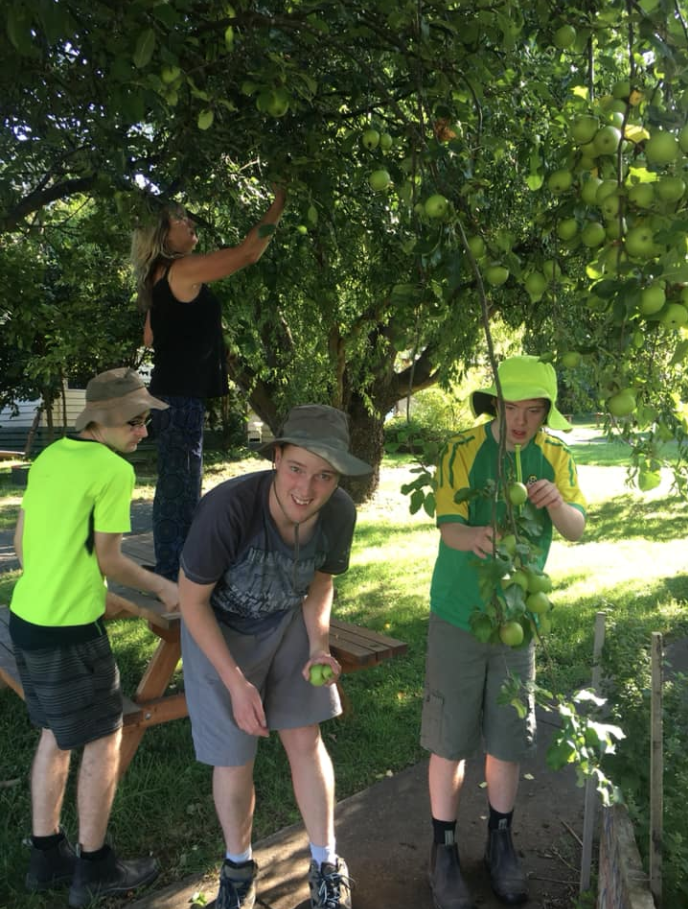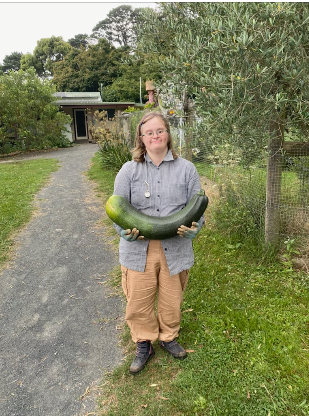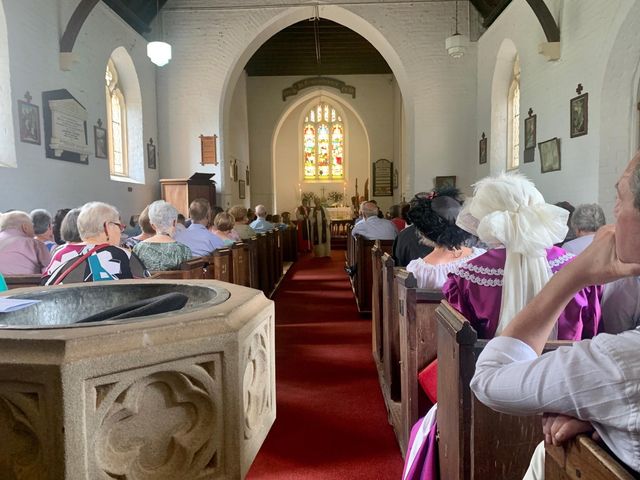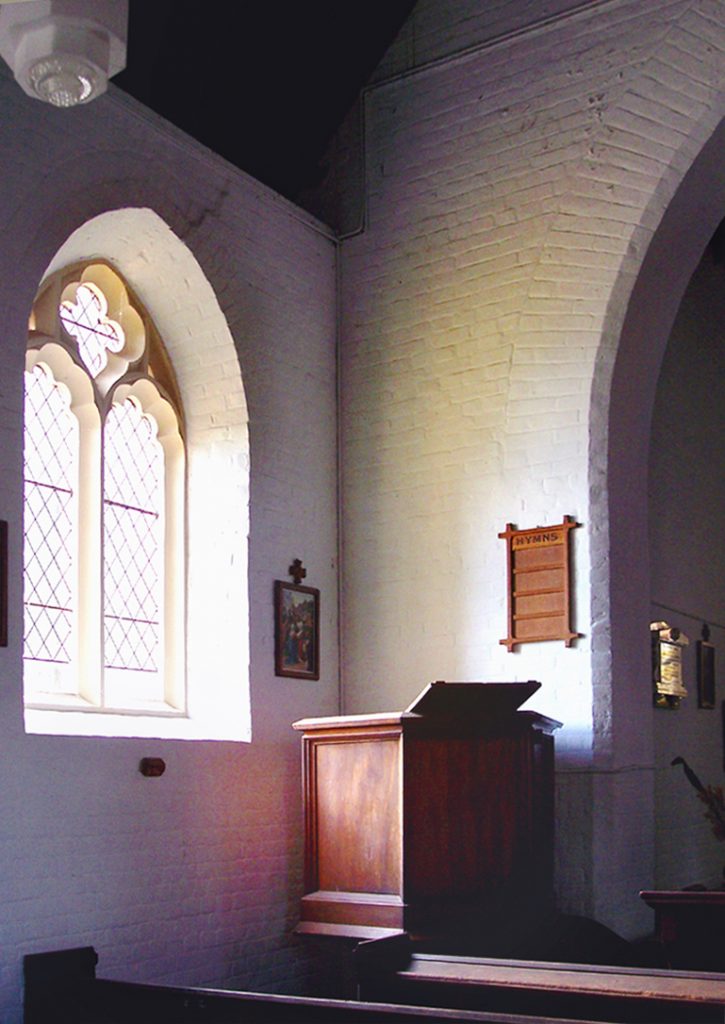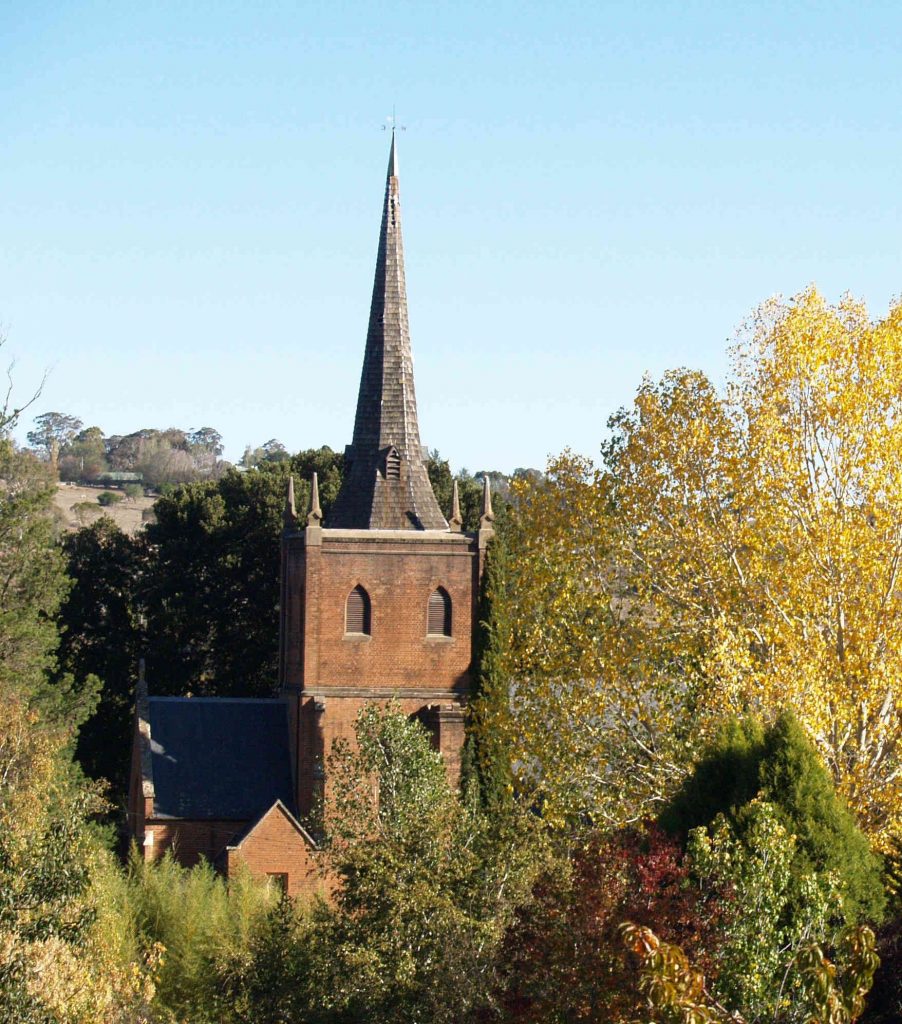Foundation for Rural & Regional Renewal (FRRR)
Yarra Valley ECOSS is an environmental and educational not-for-profit organisation based on a 7.4 hectare permaculture-designed farm at Wesburn, just east of Melbourne. Their vision is to promote local food production, earth education, and multicultural living, while building work skills and developing a vibrant, resilient, inclusive and sustainable community.
They play a critical role in their community, supporting people with disabilities, as well as providing food relief.
ECOSS currently has five part-time staff, supported by a management committee and an active and enthusiastic group of volunteers, students and work-experience partners. Like many not-for-profit organisations, their usual fundraising activities were curbed by the COVID-19 pandemic. ECOSS’s Executive Officer Chelsea McNab explained.
“At the beginning of 2021 we were all still thinking that 2020 was ‘the pandemic year’ and that 2021 would be able to go back to normal living.
“But there have been many adjustments – reacting to the ever-changing COVID restrictions and operating in a safe way. This includes constant updates to our COVID Safe plans, the ability to run programs and have people on site, purchasing of equipment, extra cleaning costs, building an outside kitchen and hand-wash stations, shutting down the office and staff working remotely, as restrictions require.”
Ms McNab said that with many facilitators and performers to account for, the costs of rescheduling events and school programs took a lot of staff time, and they have had to create new policies and strategies for adjusting to the instability of the times.
Despite it being a difficult year, ECOSS has actually shown its strength over the last six months.
“Our mission and focus on food security, volunteerism, and supporting small business have all been able to thrive through our Community Garden and The Valley Market. We have found that we are able to continue all of these aspects of our NFP during the pandemic. The Crops for Community program has also been able to continue through lockdowns, as it is seen as an essential service, offering our community members with disabilities a place to continue to come in the community garden, and continue to grow crops that are distributed to two local food relief agencies. There has been a huge demand for food relief this year, and we are grateful to be able to support these programs.”
The pandemic forced ECOSS to think outside the box, and they have attracted new co-locator tenants, whose rent increases their income, and also enables ECOSS to support the growth of small businesses run by locals and new migrants. Chelsea McNab again:
“We have learned that we have to be able to adapt to the ever-changing scenarios very quickly. We have also learned that co-locator tenants’ income is a great way to underpin our finances, and offers a richness of diversity to the site.”
ECOSS partnered with FRRR in April 2019 to open a Not-for-Profit Fundraising Account, which allows them to receive tax deductible donations from donors to support their activities. This is how they hope to raise enough funds to cover one staff member for two and a half days per week.
“We can achieve so much with extra staff hours. We have been able to support more volunteers, increasing and supporting their growth and skill development. The stability of having staff enables us to forward plan and to run the site more sustainably,” Chelsea says.
Yarra Valley ECOSS would appreciate your support. If you’d like to explore having a Fundraising Account for your community project, contact Jo Kemp, FRRR’s Philanthropic Services Manager.
Earlier this year FRRR received an application to establish a Fundraising Account for St Paul’s Carcoar Community Facility Ltd (CCF), as they had an urgent need to leverage our DGR 1 special tax status. They had been given just 90 days to raise $450,000 to purchase their local Anglican Church for use as a community facility.
They achieved that goal with just five days to spare, incredibly around $390,000 of that was raised in the preceding two weeks!
Almost all of the funds were channelled via their FRRR Not-for-Profit Fundraising Account, which allowed them to offer tax deductibility to secure the pledges of their donors, so they didn’t lose the option to purchase.
George King, one of the directors of the community association, was quoted in the local Blayney Chronicle explaining how many people thought it was an impossible task to raise so much money in such a short space of time.
“A united community, the incredible generosity of a lot of people and the love of a small village made it all happen ahead of schedule and above budget.”
Carcoar is an historic town, being the third oldest town in NSW west of the Blue Mountains. It has a small community of 300 residents and has recently joined something of a revival, with a medical practice opening and the hotel reopening on a full-time basis. It has a strong community spirit, but it lacked an accessible venue for community groups to meet.
The purchase of the church means there will now be a place to host various community gatherings, association, and group meetings, and even the odd wedding, baptism or funeral, all of which attract people into the town. As a community facility, it will be open to any religious domination or to people with no religious beliefs.
The CCF committee is now seeking to raise $100,000 to pay for an accessible toilet and canteen, which will allow them to hold community functions. So far, they’ve raised $635,506 through the FRRR account.
If you would like to support the renovation of the Carcoar community church, you can do so securely online, or by completing this donation form.
Yackandandah is a small town with a well-preserved history from the gold-mining boom. But it’s also forward-thinking and there was a push to be more sustainable in terms of power generation.
Totally Renewable Yackandandah (TRY) is the town’s driving force behind the push for renewables and increasing local ownership. Every year, millions of dollars leaves the town’s economy each year. TRY received $4,878 from the Australian Communities Foundation’s (ACF), through their FRRR Community Foundation Fundraising Account, to invest in community engagement and education around renewable energy hubs.
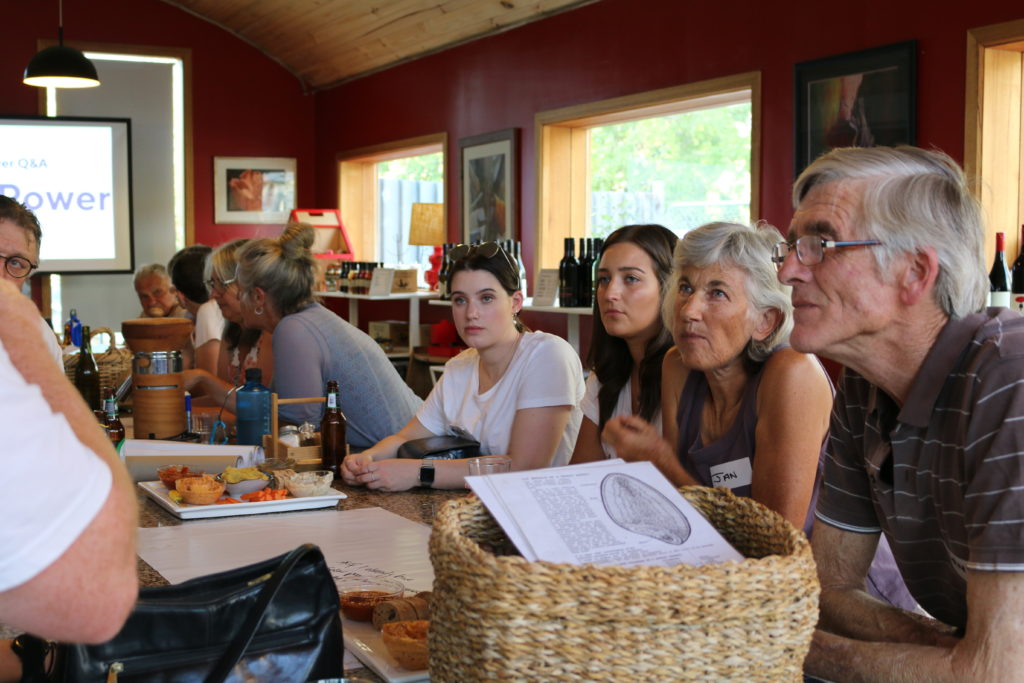
Totally Renewable Yackandandah and its partner Indigo Power, initially planned to bring locals together in a series of ‘town hall’ style events to discuss the benefits of a community solar energy hub, as well as the practical side of establishing and maintaining such a facility. While the first of these meetings went ahead, the last two events were converted to online forums due to COVID-19. Turnout was still high, with more than 500 people in total attending the events.
Cambell Klose, who has driven the community project, said the community response was phenomenal. “Every year more than $160 million leaves our region because of people paying their electricity bills; people were really excited to be part of a movement that is changing that.
“Local residents learned what a community energy hub is and how they can use solar to power our region with clean energy, and reduce their power costs. We also covered how to support and undertake community projects, like solar on town halls, to promote renewable energy hubs.”
Cambell also said that the community was very motivated by the sessions.
“Residents wanted to go away and power their local town hall with renewable energy or work to put solar on government housing. It was incredible to see so many local people come together for climate solutions.”
ACF partnered with FRRR to establish a Community Foundation Fundraising Account to streamline the process of making grants to community organisations that don’t hold DGR1 status in remote, rural or regional areas which are conducting charitable activities in line with FRRR’s purposes.
If you’d like to explore having a Fundraising Account for your community project, contact Jo Kemp, FRRR’s Philanthropic Services Manager.
The Friends of St Brigid’s (FoSB) Association Inc is a community organisation formed in 2006 after the closure of the local Church and Hall in Crossley, Victoria. The group purchased the buildings and are now caretakers of the five-acre community-owned and operated precinct which celebrates 150 years of unique Australian Irish history in south-west Victoria. The facilities include a 1914 Romanesque Church and community hall, home to the St Brigid’s Australian Irish Cultural, Heritage and Community Centre, and have evolved to include the Crossley Men’s Shed and peace and healing gardens.
FoSB has a long partnership with FRRR, opening a Not-for-Profit Fundraising Account in 2011, which was subsequently renewed in regularly in the intervening years, and again this year. The Fundraising Account assists them to raise much needed funds to contribute to ongoing facilities upgrades that allow people of all abilities to access and participate in activities at the precinct.
FoSB’s typically holds many events during the year through which much of their income is generated. However, like many community organisations, the onset of COVID-19 brought a halt to their regular events such as concerts and hiring out facilities for public and private events.
The year had started out well, with a Blues & Roots Festival in early January, two private family functions in February, and then two events in March. However, they were left with a COVID-quandary – how to find alternative ways to raise funds and / or reduce their overheads.
FoSB Treasurer Sue Elms said their first action was to request relief from paying their monthly mortgage instalments and insurance premiums. While that granted them a brief reprieve, the stark reality remained that they still had to find the funds for future payments.
This led to the organising committee donning their thinking caps, with considerable success thanks to the enthusiasm of their Committee Members and many volunteers, which highlighted the tenacity and commitment of FoSB’s.
They came up with a list of alternate fundraisers, which included the Men’s Shedders cleaning and reselling 600+ old bricks; a bus outing with appropriate social distancing measures in place; a walk and talk event, which was a great financial and social success; a letter of appeal was sent out to members and past supporters; and a 50:50 raffle raised more than $2,500.
FRRR’s Philanthropic Services Manager, Jo Kemp, says that it is innovative responses like these that will help community groups overcome the challenges that the pandemic has presented.
“I’m so impressed with FoSB’s response to the unexpected situation we all find ourselves in. They have successfully come together and adjusted their plans to find other ways to meet their financial obligations, and continue to serve their community. However, it is an ongoing challenge and they continue to seek donations to support their operations,” she said.
FoSB would appreciate your support for this initiative. If you’d like to explore having a fundraising account for your community project, contact Jo Kemp, FRRR’s Philanthropic Services Manager.
If you’re looking for advice on how your community group can respond to the COVID crisis, there are lots of resources available such as those listed on the OurCommunity website.
FRRR’s Not-for-Profit Fundraising Accounts help make FRRR’s unique tax status available to community organisations to assist with fundraising.
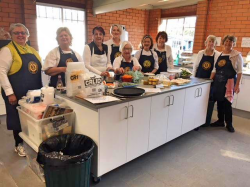
The Royal Agricultural Society of NSW (RAS) Foundation helps to build strong, vibrant and resilient rural communities through education and skills development. The Foundation operates the RAS Rural Fund, a charitable organisation that is currently fundraising via a Not-for-Profit Fundraising Account to help community organisations across rural and regional NSW refurbish and restore rural showground kitchens.
Not only is the kitchen the heart of the home, but it is also often the heart and soul of rural communities, serving as a meeting place and hub for activities. Many showground kitchens across NSW require an upgrade to provide more functional facilities to benefit their communities and better support a broad range of events and activities. The RAS NSW Showground Kitchen Upgrade Grant project will provide critical funds to improve kitchens to serve their communities better, enabling them to come together to support one another, through fundraising events and other activities.
If you want to support this initiative and make a tax-deductible donation, you can do so via FRRR’s secure website.
If you’d like to explore having a fundraising account for your community project, contact Jo Kemp, FRRR’s Philanthropic Services Manager.
The annual Castlemaine Documentary Film Festival has been running since 2014, and is widely considered a staple on the town’s arts calendar. It’s an exciting event that fosters cultural vibrancy in this small, regional town.
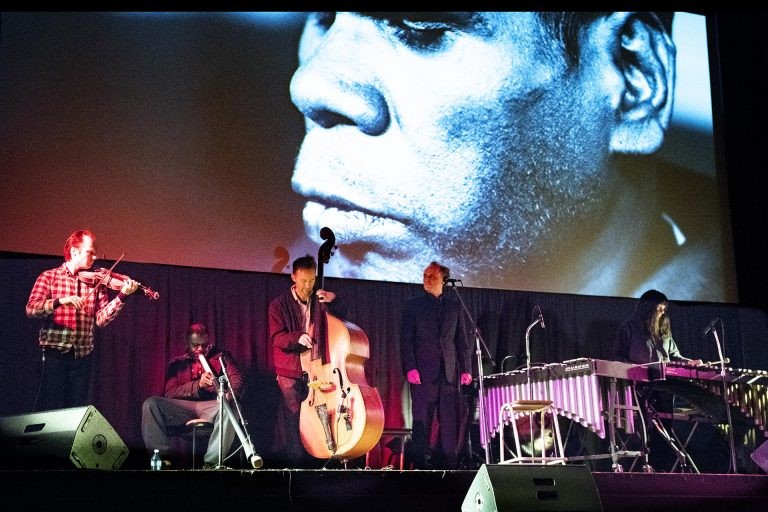
C-Doc established a Not-for-Profit Fundraising Account with FRRR in May 2019, with the intention of raising funds to help them deliver a festival that creates a shared sense of belonging and connectedness among diverse community members and people who are inspired and engaged to build a better world.
Like many communities, never has this been so important than this year. The unprecedented circumstances created by the COVID-19 pandemic disrupted the festival planning, and C-Doc had to rethink the logistics behind the popular event.
What started out as a postponement was soon reinvented as an online-only ‘Mini Festival’ instead, to cater for any further disruption and potential increases in social-distancing restrictions. The new, reimagined festival was introduced to the community as C-Doc In The Clouds 2020.
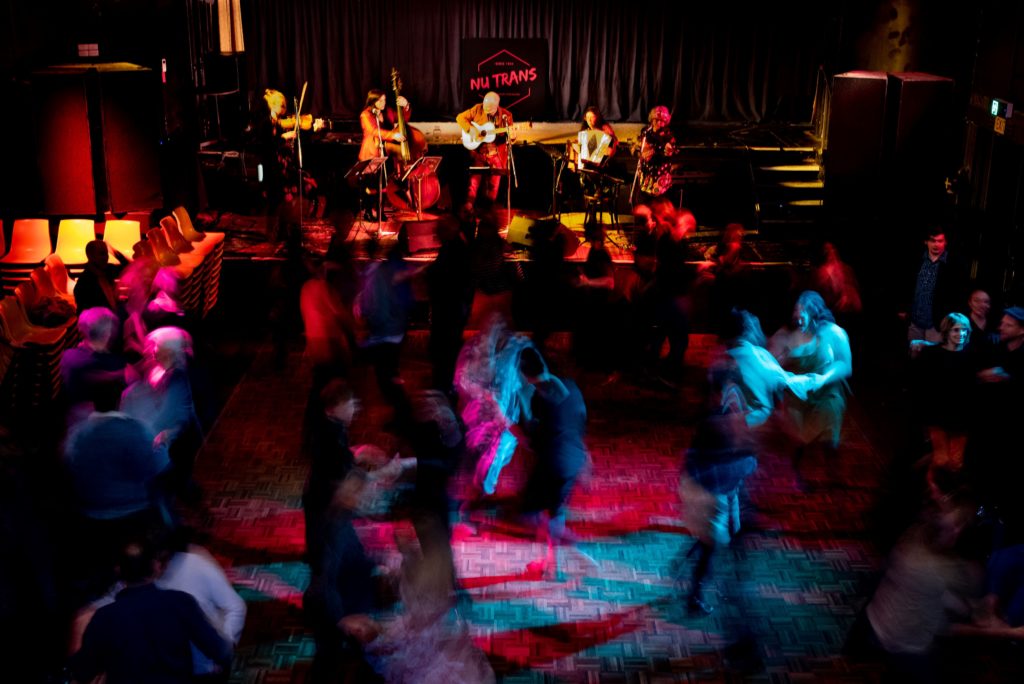
Supported by the funds raised through their FRRR account, C-Doc adapted effectively to these new circumstances, and produced an ‘On-live’ (live-to-air) festival which aired last weekend. Despite the technical challenges, the festival featured a curated selection of enriching and thought-provoking documentaries, complete with live discussion panels following each screening. Forty lucky people were fortunate to attend each of the screenings held at the Theatre Royal in Castlemaine, with appropriate social-distancing measures in place.
C-Doc’s ability to adapt and reinvent the event in such a short amount of time was inspirational, and high hopes are held for the festival’s return again next year – online or otherwise.
If you’d like to explore having a Fundraising Account for your community project, contact Jo Kemp, FRRR’s Philanthropic Services Manager.
The Next Economy (TNE) was established in March 2018 to support communities struggling with change to build regional economies that are good for both people and planet.
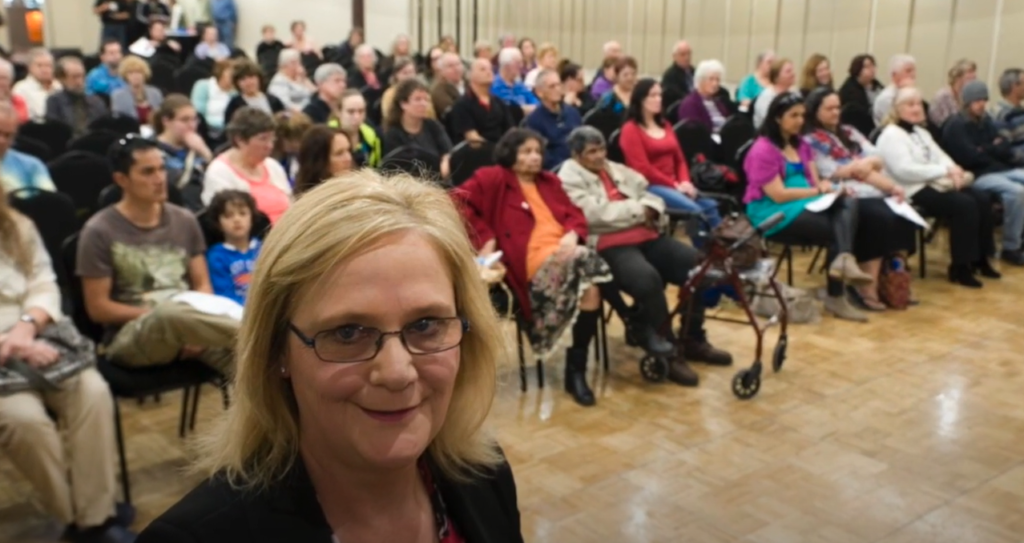
Since then, TNE has worked with government, industry and community groups in key regional areas to identify opportunities to explore the emerging economic opportunities in acting on climate change by reducing and absorbing carbon emissions across all sectors, and in regenerating land and water resources.
One of the charitable purposes under TNE’s ACNC registration is the advancement of education. They work in the areas of environmental sustainability and economic development, with a strong focus on rural and regional communities.
In August 2018, TNE partnered with FRRR to establish a Not-for-Profit Fundraising Account to specifically support the educational component of TNE’s activities and their capacity to enable the educational programs to be delivered for the benefit of regional Australians.
The Fundraising Account considerably enhanced their ability to receive donations from DGR-2 endorsed entities, bequests, and corporate philanthropy. This has enabled TNE to put in place strong systems, policies and procedures to support its ongoing development and delivery of workshops to strengthen the capacity of people working in regional communities across Australia to manage economic change and support the transition to a fairer, zero emissions economy. Funding received through the FRRR donations account has also enabled the delivery of 15 workshops and forums in communities across Queensland, New South Wales, Victoria and Western Australia.
TNE offers two main educational training programs:
- A year-long incubator program called Building the Next Economy: Thriving in a Changing World (BNE). The BNE program aims to support people working for regional councils and economic development agencies to identify, research, and implement new economic initiatives. By the end of the year-long program, each region will have developed comprehensive plans for how they will transition to a stronger, fairer and more resilient economy, as well as investment-ready business cases for key initiatives.
- The Transitioning Australia Program. The Transitioning Australia Program is a short course on managing economic change aimed at local councils and others which raises awareness of the range of economic opportunities that are available to communities willing to reduce their carbon emissions. This program will be delivered across eight regional communities in year one and grow as capacity increases – it operates as a fee for service to councils, but fees are able to be varied for other not-for-profit groups.
The materials generated through both programs will be used to deliver other activities, such as short courses, presentations, workshops and online learning (webinars and podcasts, for example).
The outcome of the education programs includes a stronger partnership and collaboration network locally, which aid in building sustainability.
The Next Economy programs give participants adaptive skills, critical thinking and produce tangible projects that achieve on ground impact. TNE is filling a niche need for accessible education on community-based economic models and clean energy systems, and purposefully aiming to cross cultural and socio-economic boundaries.
Support the work of TNE by donating here.
Child Writes Fund is a charity that ’empowers children to navigate their future through story’. The Child Writes program gives primary school-aged children a voice by offering them the opportunity to write and illustrate their own children’s picture books.
The Fund partnered with FRRR in March 2019 to create a Not-for-Profit Fundraising Account to support its endeavours, and the funds raised contributing to delivering more programs in rural and regional areas where children are in crisis and making the library of books widely available via an app.
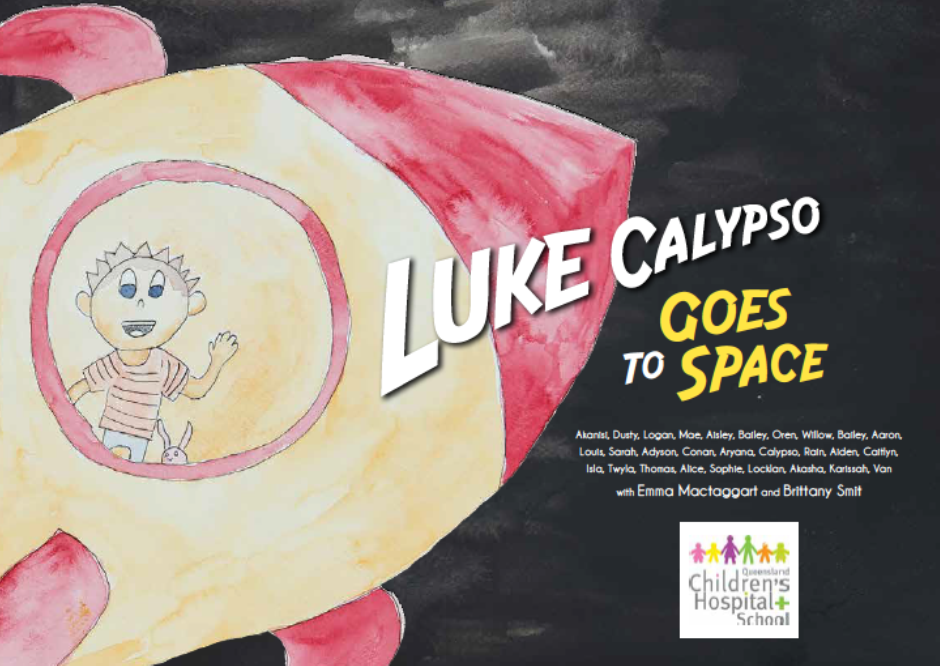
A group of approximately 15 children develop the picture books through a five-day workshop during which they collaborate on a single picture book (from initial idea through writing, illustration, publishing, launch and distribution) and address a specific issue relevant to their day-to-day life. The books present a range of messages, including addressing issues across health, environment, relationships, bullying, racism and exclusion. Through storytelling, the children are empowered to navigate these issues and create a product that can be shared by others. The books are distributed for use to locations where children are in crisis, such as local hospitals, doctor’s surgeries, The Pyjama Foundation and Ronald McDonald House. Copies of the published book are also provided to the group to sell and generate a profit.
Copies are donated to places (such as hospitals) where children are in crisis, allowing the child authors and their readers to be encouraged by the achievement and generosity of their peers.
Every book is also made available for purchase online in electronic form, which means that groups can receive royalties from the sales of their books.
Child Writes Fund also supports International Read to Me Day, held annually on March 19th, reminding children to be part of the conversation and remind their family they would like to be read to often. It is a social awareness campaign, reiterating the importance of reading to children, and children sharing this skill with their peers.
Child Writes Fund has worked with communities in crisis, like Eidsvold in Queensland’s North Burnett Region, which, when they took the program there, had the unenviable tag of being the location for one of the highest suicide rates amongst its young adult males in the country. They’ve also worked with the Queensland Children’s Hospital School, working with children who were patients, or a parent or their sibling may have been a patient.
Founder of the Fund, Emma Mactaggart, explained the significance of the hospital school project.
“It is a small school determined to give the children as much encouragement as possible, but the children inevitably feel as though they are ‘alien’ as they are not at their normal school. It was the week of the 50th anniversary of man landing on the moon, so it didn’t take too much of a leap for the children to connect their sense of isolation to that of deep space; hence Luke goes to space, to discover things are not as amazing as he would have liked. He does dig deep though, and simply because he is determined, he manages to come back to his home.”
Learn more about FRRR’s Not-for-Profit Fundraising Accounts, or for more information on the Child Writes Fund, or to make a tax-deductible donation, visit their website.
Northern Rivers Community Foundation (NRCF) was established in 2004 with the purpose to connect people who care with local causes that matter, to improve community well-being for the Northern Rivers region of NSW. They provide annual grants to a wide range of community groups for projects ranging from mental health, to growing fresh food to ensure children are well nourished and can learn, to distributing Back to School vouchers. NRCF is particularly focused on supporting grand-carers, supporting riding for the disabled and palliative care.
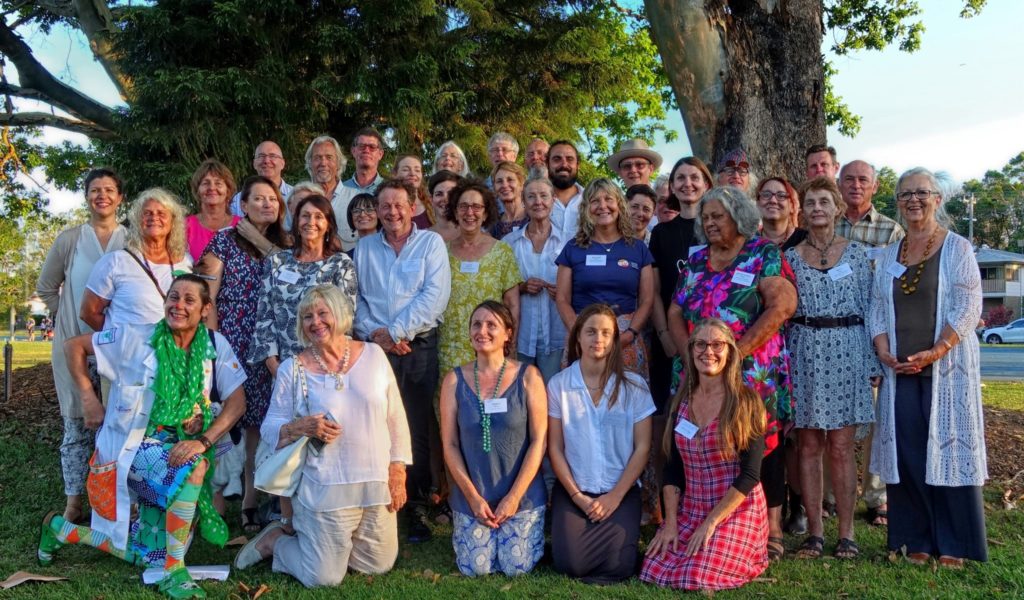
FRRR’s NRCF Community Foundation Account helps facilitate donations for a number of their partners and enables them to leverage FRRR’s tax deductible status to maximise their donations. In 2019 they distributed some $114,000 in grants including to the Bangalow Koalas to set up a wildlife corridor; provided medical equipment to Tweed Palliative Support and Wedgetail Retreat Community Hospice; enabled the Bunjum Aboriginal Corporation to refresh their unit used as a transition house for women fleeing violence; provided professional development for tutors and support workers at Sprung Integrated Dance Theatre; and supported a youth program for first offenders with NSW Police participation.
The Lockhart & District Historical Society operates the Greens Gunyah Museum, the Doris Golder Gallery and the local Visitor Information Centre in the NSW Riverina. They saw a wonderful opportunity for expansion when the building and land next to the museum was listed for sale, under the guise of the Double the Space Double the History Project.
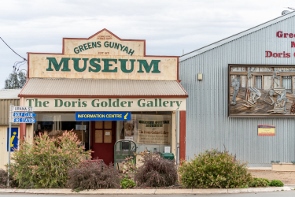
A fundraising campaign, using a FRRR fundraising account and a $15,000 grant from the Culture, Arts, Tourism and Community Heritage (CATCH) grants program allowed the Historical Society to purchase the adjoining property and expand their offerings to include hosting events. New displays could also be developed and storyboards showcasing historical and contemporary stories of agriculture within the region. The Greens Gunyah Museum is participating in a project with ten other museums within the Riverina region to collect video footage of rare and iconic agricultural machines found within the participating museums, and interviews with past operators. Importantly, the collection could be displayed above the flood line and provide an all-weather area in which the collection can be interpreted through a new electronic display, photographs and associated items. Floodwaters up to a metre high had previously come through the museum in 2010 and 2012.
After four long years, and a fundraising campaign which delivered the just under $100,000 required for the project and the revived Greens Gunyah Museum was completed in May 2019. The public is now visiting and able to enjoy exhibitions that have been developed so far.
An exhibition for the politician, diplomat and proud Lockhart local Tim Fischer opened on 2 May 2019 in one of the rooms with an outstanding response from the community. Over 200 people celebrated with Tim, who was able to enjoy his exhibition before he became too ill to attend.

